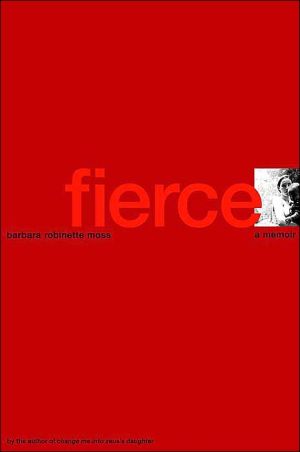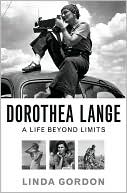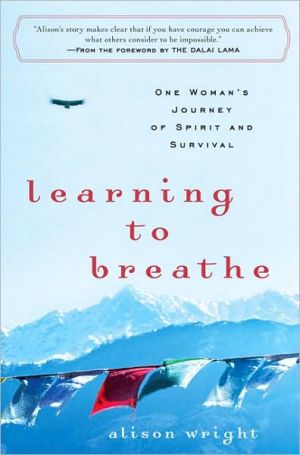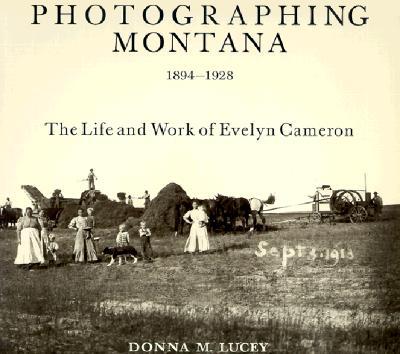Fierce: A Memoir
From the award-winning author of Change Me into Zeus's Daughter comes this compelling memoir about a single mother determined to break the patterns that she has been taught.\ Barbara Robinette Moss grew up in the red clay hills of Alabama, the fourth of eight children, in a childhood defined by close sibling alliances, staggering poverty, and uncommon abuse at the hands of her wild-eyed, charismatic, alcoholic father.\ In Fierce, Moss looks at what happens when a child of such a family grows...
Search in google:
From the award-winning author of Change Me into Zeus's Daughter comes this compelling memoir about a single mother determined to break the patterns that she has been taught.Barbara Robinette Moss grew up in the red clay hills of Alabama, the fourth of eight children, in a childhood defined by close sibling alliances, staggering poverty, and uncommon abuse at the hands of her wild-eyed, charismatic, alcoholic father.In Fierce, Moss looks at what happens when a child of such a family grows up. At once poetic and plainspoken, Moss, a "powerful writer" (Chicago Tribune), paints a vivid, moving portrait of her persistent quest to reinvent her life and rebel against the rural indigence, addiction, and broken dreams she inherited from her parents.With warmth, insight, and candor, Moss tells the poignant story of finally leaving everything she knew in Alabama to fulfill her ambition to become an artist. It is an odyssey filled with gritty improvisation (bringing her son, Jason, to her night job to sleep on the floor), bittersweet pragmatism (filling her purse on a dinner date with shrimp, rolls, and even a doily, to bring home to a waiting eight-year-old), and staunch conviction and pride (chasing a mail carrier down the street to defend her use of food stamps).As with many other children of alcoholics, the legacy of her father's alcoholism catches up with Moss, and an abusive relationship — an inheritance and addiction of its own sort — threatens to destroy all that she has accomplished. But as Moss learns to cope with her anger and pain, parenthood helps her discover true strength.Ultimately, Fierce is a warm, honest, and triumphantstory, from a writer celebrated for her Southern lyricism, about a woman determined to make it on her own — to shrug off the handicaps of her childhood and raise her son responsibly and well.The Washington Post - Andrew ErvinAmid the violence, Moss never fails to find a glimmer of beauty. By striking that balance, she invariably brings us closer to her own molten emotional core.
Chapter One: Dreaming Through The Twilight\ "You ought to join the military, Southpaw," my dad said. I smiled at his term of endearment, Southpaw. When I was a little girl, he'd tried to force me to be right-handed by tying my left hand behind my back when I wrote. At some point, sensing futility, he'd given it up and now seemed to enjoy my left-handedness. We were sitting on the back steps. He smoked while I sketched the pine trees behind our house, drawing with an ink pen in a spiral notebook that was supposed to be filled with notes for my upcoming American history final.\ "We're pulling out of Vietnam," he said. "You wouldn't have to worry about going to war." He sighed. "Anyway, it'd get you out of this godforsaken place." He dropped his cigarette, snuffed it out with the toe of his shoe, and sauntered down the steps — heading to the bar.\ I watched him throw a hand briefly into the air and climb into his car. I waved back, knowing he'd come home drunk and ready for a fight. I worried that his mild suggestion to join the military might turn into a demand come midnight. I cringed at the thought of how my present situation — graduating without any prospects — might turn into a salient point once he'd had a few drinks. The previous Friday night, he'd come home from the bar, and before Mother had time to turn on the lights, he started shouting, Barbara, when are you going to get a job?! The fact that I was still in high school, didn't own a car, and lived miles from the bus stop didn't seem to enter into the question.\ I tossed my spiral notebook onto the porch and climbed onto the glider of my baby sister Janet's swing set. I threw my legs over the backseat, flipped upside down, and closed my eyes. My long hair swept the grass as I pumped the swing into motion. I let my mind wander. Within seconds my favorite daydream filtered in. I'm at the opening of my first art show. Gorgeous paintings line the gallery walls: water lilies, several views of a haystack, bright sunflowers (images mentally swiped from my mother's art books). Suddenly a New York City gallery owner arrives. She's wearing a black dress with a bright red pillbox hat and matching lipstick. Thrilled with my artwork, she throws her arms around me. "You are brilliant," she declares. "I'm taking you straight to the Big Apple."\ Just then someone climbed onto the other seat of the glider. "What are you smiling about?" Doris Ann asked.\ "I'm not smiling," I said, opening my eyes and glaring at my younger sister. She flipped upside down and put her head next to mine. "You wanna walk down to Junior's house?" she asked.\ Junior, our closest neighbor, lived a mile away. "It's too hot," I said, shrugging my shoulders, irritated. "And I'm trying to think."\ "Think about what?"\ "About joining the military," I lied, closing my eyes again. My daydream instantly changed to olive drab. I snatch up a rolling grenade, toss it away, and fire off a round, saving my platoon. For my heroism, I'm stationed back in the States and given a job creating a new, sharper design for the military camouflage uniforms. The pattern I create is used universally for uniforms, helicopters, and vehicles.\ Doris Ann threw her hands behind her head. "When you join the military, I'll have a bedroom all to myself."\ Just then Willie chased John around the side of the house with a water balloon. John, screaming his head off, climbed over Doris Ann and me and kept running. Willie did the same.\ "Get out of here!" I shouted, slapping at them as they dashed away. I squeezed my eyes shut. Suddenly a New York gallery owner arrives. She's wearing a black leather pantsuit and love beads with a big peace sign. Happy with this daydream, I smiled to myself.\ I heard the screen door slam and opened one eye. Mother stood on the porch. As the glider swept back and forth, I could see half of her, then all of her, then half again. My baby sister Janet, who was four, came out and caught hold of Mother's skirt at the curve of her hip. Like a snapping turtle, she'd hold that fabric in her fist until it thundered. But from the stormy expression on Mother's face, thunder was on the way. I waited for her to say my name before opening my other eye.\ "Barbara," she called, "do you want to wash the supper dishes or play with Janet?"\ I opened my eyes and winked at Janet. She laughed, knowing the answer, and bounded down the stairs and jumped into my arms.\ "What were you smiling about?" she asked.\ Doris Ann scooted over and I pulled Janet onto the glider. "I'm smiling at you," I said.\ I joined the Navy — because the uniforms were bell-bottoms. But when I went for my physical, the first thing the doctor checked was my heartbeat. He put the stethoscope on my chest and moved it around. "Have you had rheumatic fever?" he asked.\ "When I was thirteen," I answered.\ He shook his head. "She's out," he shouted. A nurse came to escort me out of the examining room.\ "Wait," I cried. "I've got to get in." But the doctor waved me away.\ Months went by. I helped Mother look after Janet, helped her wash clothes in the wringer washer, weeded the garden, played horseshoes with Willie and Doris Ann, taught my youngest brother, John, to walk all the way around the house on an empty fifty-five-gallon drum, sketched the pine trees. I spent more time than ever daydreaming, but when I opened my eyes and left the dream behind, I couldn't see a future at all. My life had come to a standstill.\ My neighbor introduced me to Rudy. He was in the Army, stationed at Fort McClellan, a military installation on the outskirts of Anniston. "You're tall," he said, eyeing me from head to toe.\ "Yeah," I said, embarrassed.\ "My ex-wife was short," Rudy said. Then he asked me if I'd ever been with a man. "I'm looking for a pure woman this time."\ We got married at the chapel out at Fort McClellan. Dad was supposed to give the bride away, but the military police at the front gate arrested him for public intoxication. My older brother David had to stand in for him. (My oldest brother, Stewart, who would have been next in line for the honor, had joined the Marines.) After the wedding ceremony, the guards called the chapel. As a wedding gift, they were releasing Dad without a fine. We could pick him up on the way out if someone sober was available to drive his car home.\ "I could hardly be called drunk," Dad said as the guards helped him into the backseat of our car. Mother turned away and wouldn't speak.\ I was glad to see him, glad he wasn't in jail. "Dad, you missed the wedding," I said, flashing my ring in his face.\ Dad nudged Mother. "If I'd known they considered a few beers to be intoxicated, I wouldn't have wasted twenty bucks on this monkey suit."\ Copyright © 2004 by Barbara Robinette Moss
\ Andrew ErvinAmid the violence, Moss never fails to find a glimmer of beauty. By striking that balance, she invariably brings us closer to her own molten emotional core.\ — The Washington Post\ \ \ \ \ Publishers WeeklyMoss does what you'd expect from a visual artist: she paints pictures with her words. As with her first memoir, Change Me into Zeus's Daughter, she uses the painful stuff of her life-an alcoholic father; numerous abusive husbands; continual, exhausting poverty-and turns it into chilling, visceral imagery. Recalling a day in her tumultuous childhood when her father shot the family pony in a rage, she writes, "Then I saw it, clear as a bell-the tractor dragging the dead pony through the freshly plowed soybean field behind our house. The wet, red mud guttered on either side of the pony like a wake left by a boat." She mercilessly braids the gruesome beauty of images like this with a hopeful message: survive. But beyond surviving, Moss creates. She holds fast to her dream of becoming a visual artist, no matter how impractical a notion it is for a woman from a working-class background. Even more moving, she doesn't become an artist-or a writer for that matter-who transcends and leaves her beginnings behind; she carries them with her, puts them on canvas and paper and exhibits them for the world to see. Admittedly, there are times when the rhythm feels a bit off, but even Moss's lack of pacing feels like part of the erratic whirlwind that is her life. Agent, Wendy Weil. (Oct. 19) Copyright 2004 Reed Business Information.\ \ \ Library JournalThe messiness of life abounds in this episodic tale of a woman who has struggled to become a visual artist but cannot erase the circle of family violence that began in her childhood. In her second memoir, award-winning author Moss (Change Me into Zeus's Daughter) tells how an interest in the creative arts drove her to rise above childhood poverty, leave her family in Alabama, earn an advanced degree, and raise her son. Unfortunately, readers may lose sight of Moss's achievements because of all the family and romantic complications. Moss and her sisters repeatedly connect with violent men, her father and brother battle alcoholism, and the book centers on Moss's relationship with a schizophrenic artist whom she is trying to save from himself. Instead of valuing the book as a carefully written autobiography about a woman who has finally discovered her true self, patrons may just read in anticipation of the next family crisis. For larger academic and public library collections. Joyce Sparrow, Juvenile Welfare Board of Pinellas Cty., FL Copyright 2004 Reed Business Information.\ \ \ \ \ Kirkus ReviewsFurther plumbing of the past from memoirist Moss (Change Me Into Zeus's Daughter, 2000), here recounting her journey out of poverty and efforts to escape an alcoholic heritage. Moss likens this work to one of her mother's patchwork quilts, constructed of seemingly separate pieces that together create a pattern. She opens with a bittersweet childhood recollection of earning a nickel pulling weeds out of a neighbor's sidewalk in Alabama in 1965 and then moves on to her early adulthood. She had two disastrous marriages with controlling, abusive men, bore a child, and finally, at 27, left her parents' home to study art at the Ringling School of Art & Design in Sarasota, Florida. Struggling to make ends meet and to shape a life for herself and her son, Jason, in Florida and later in Iowa, where she studied art at Drake University, Moss faces the contempt of neighbors when her welfare dependence becomes known. She shows spunk and imagination in dealing with this, and throughout, Moss retains an impressive determination to better her life. But her relationship with another abusive man, this time a mental patient with whom she becomes obsessed, very nearly knocks her off course. Her eyes opened by therapy and by reading Women Who Love Too Much, she eventually comes to understand how having grown up with a frequently drunk and sometimes violent father has harmed her ability to form healthy relationships with men. From time to time, the author returns to Alabama, both in person and in memory, and her Alabama stories are filled with angry, self-destructive men, the women who put up with them, and the children who suffer the consequences. The end, though, is a happy one, with Moss finding love,peace, and security in her third marriage and fulfillment in her work as an artist and writer. A vivid picture of the havoc wreaked by alcoholism and poverty and of the true grit require to overcome them. Agent: Wendy Weil\ \








